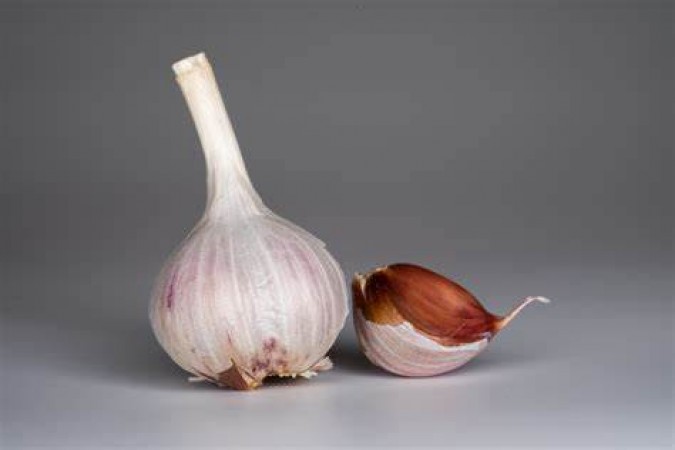
Garlic, often regarded as a humble ingredient in our kitchens, offers far more than just flavor and aroma. This small bulb is packed with numerous health benefits, ranging from boosting immunity to improving heart health. Let’s delve into the various ways garlic can benefit our health, especially in terms of heart health and immunity.
Heart Health Benefits of Garlic
Lowers Blood Pressure: Garlic is known to help reduce blood pressure, which is a major risk factor for heart disease. It contains compounds like allicin that promote the widening of blood vessels, thereby improving blood flow and lowering blood pressure levels.
Lowers Cholesterol Levels: High cholesterol is another risk factor for heart disease. Garlic has been shown to lower total cholesterol and triglyceride levels, while also increasing HDL (good) cholesterol levels. This can help reduce the buildup of plaque in the arteries and lower the risk of heart disease.
Improves Circulation: Garlic’s ability to improve blood flow can benefit heart health by enhancing circulation throughout the body. Improved circulation means that vital nutrients and oxygen can reach the organs and tissues more effectively.
Reduces Risk of Atherosclerosis: Atherosclerosis is the buildup of plaque in the arteries, which can lead to heart attacks and strokes. Garlic has antioxidant properties that help protect against oxidative damage from free radicals, thereby reducing the risk of atherosclerosis.
Anti-inflammatory Effects: Chronic inflammation is linked to various heart conditions. Garlic has anti-inflammatory properties that can help reduce inflammation in the body, including in the cardiovascular system.
Other Health Benefits of Garlic
Boosts Immunity: Garlic has antimicrobial and antiviral properties that can help strengthen the immune system, making it more resilient against infections.
Antioxidant Properties: Garlic contains antioxidants that protect cells from damage caused by free radicals, which are unstable molecules that can contribute to aging and disease.
Cancer Prevention: Some studies suggest that garlic may have cancer-fighting properties, particularly against cancers of the digestive system.
How to Incorporate Garlic in Your Diet
Raw Garlic: Consuming raw garlic provides the most health benefits. Add it to salads, sauces, or as a topping for bread.
Cooked Garlic: While cooking reduces some of the potency of raw garlic, it still retains many health benefits. Use it in soups, stews, stir-fries, and roasted dishes.
Garlic Supplements: If you don't enjoy the taste of garlic, you can take garlic supplements. However, consult with a healthcare provider before starting any supplements.
Precautions and Considerations
Garlic Allergy: Some individuals may be allergic to garlic. If you experience any adverse reactions, stop consuming garlic and consult with a healthcare professional.
Interactions with Medications: Garlic may interact with certain medications, especially blood-thinning medications and medications for high blood pressure. Consult with a healthcare provider if you are taking medications.
Garlic is a versatile and potent addition to your diet that offers a wide range of health benefits, especially for heart health and immunity. By incorporating garlic into your meals regularly, you can enhance your overall well-being and support a healthy heart and immune system.